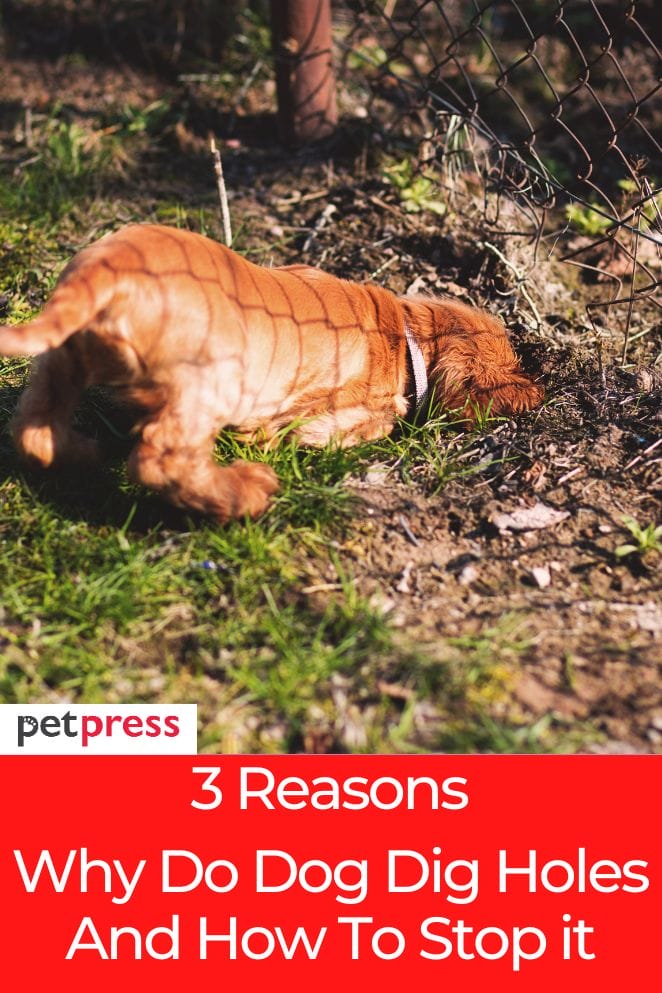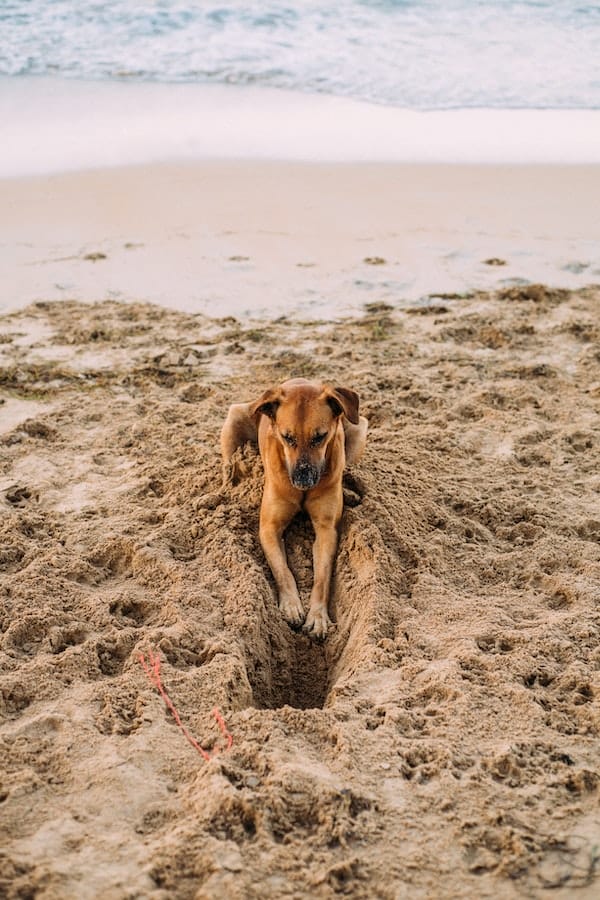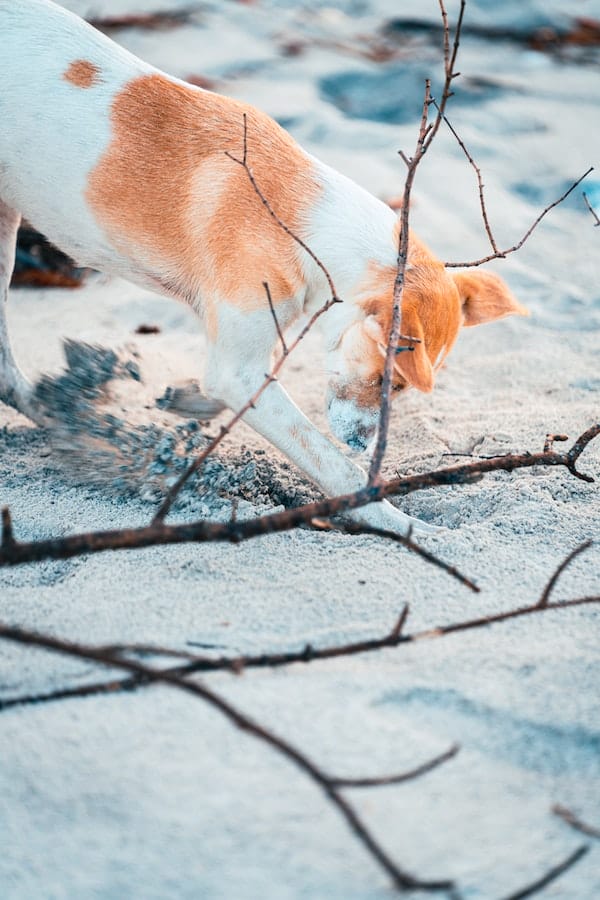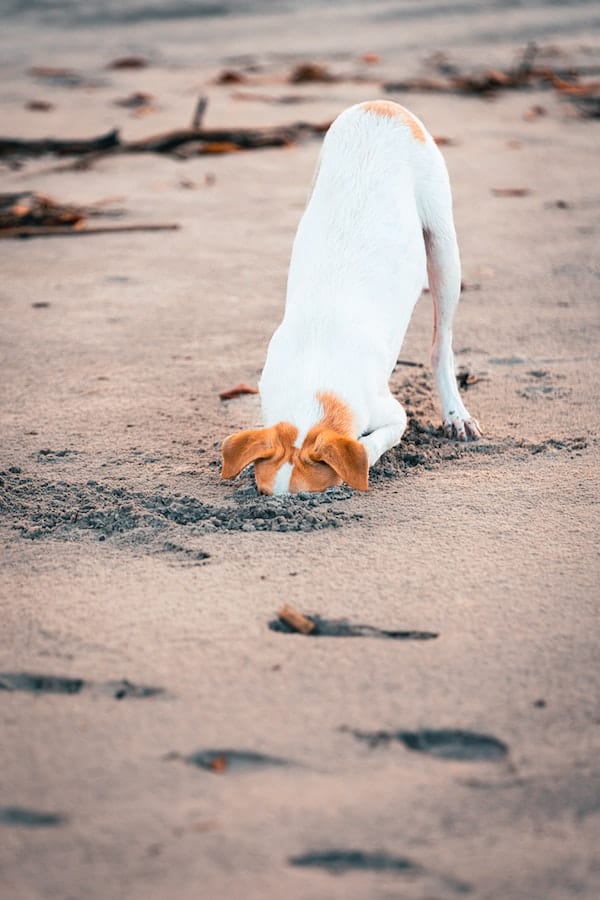
Digging holes is a common behavior amongst dogs, and it can be perplexing for owners to try and understand why their pup is doing so.
Digging serves many purposes for dogs, from burying food or bones for later, cooling down in hot weather, and even just for fun.
In this article, we will discuss the various reasons why dogs dig holes and how owners can help manage their dog’s digging behavior.
What does it mean when a dog digs a hole?

There are a few different reasons why dogs may dig holes. These reasons include:
Burying food or bones
Dogs have the instinct to bury food or bones for safekeeping and later consumption.
This is especially true for smaller breed dogs, who have difficulty finding enough food in the wild.
By burying their finds, they can save them for later and make sure that another animal doesn’t snatch them away.
It may seem strange but this behavior is quite common in the animal kingdom.
For comfort and cooling down
Dogs may also dig holes to stay cool on hot days or to make a comfortable spot for themselves.
Dogs can regulate their body temperature by burrowing into an area of cooler earth.
While it’s not always the most practical option, this behavior can provide comfort to dogs needing a chill-out spot.
Because it’s fun
Sometimes, dogs dig for the fun of it!
Dogs are curious animals and enjoy exploring their environment. Digging can be an enjoyable activity that helps satisfy their curiosity while providing entertainment.
How to manage your dog’s digging behavior?

While it’s natural for dogs to dig holes, it can be unwelcome for many owners.
If you struggle with managing your dog’s digging habits, there are a few steps you can take.
Provide an appropriate space
If your dog has an area in the yard that they can dig without consequence, it may help to reduce the amount of digging they do elsewhere.
If you can provide an appropriate space with loose soil or sand for your pup to play and dig in, this could be a great way to both encourage acceptable behavior and manage their instinctual need to dig.
Use positive reinforcement training
Positive reinforcement training is an effective tool for helping manage unwanted behavior in dogs.
Use rewards such as treats or toys whenever you see your pup engaging in acceptable digging behaviors and use verbal cues, such as “leave it” or “stop,” when they are digging in unwelcome areas.
Monitor your dog’s time outdoors
If you cannot provide a designated digging area for your pup, it may be beneficial to monitor their time spent outside.
By supervising your pup’s activities, you can help limit the amount of digging they do and redirect them to more appropriate behaviors.
Do dogs ever stop digging?

Although some dogs may be more prone to digging than others, most dogs can be trained to stop this behavior over time.
With patience and consistency, owners can help manage their pup’s instinctual need to dig to prevent any damage or disruption caused by the habit.
Owners should also consider providing alternatives for their pup such as puzzle toys or chew toys, as a way to satisfy their urge to dig.
Additionally, giving your pup plenty of exercises and outdoor playtime can help to keep them occupied and out of trouble!
With dedication and understanding, owners can succeed in curbing their pup’s digging behavior.
Final thoughts
Digging is a natural behavior for dogs, and while it can be an unwelcome habit at times, owners can help manage their pup’s digging behavior with the right tools and techniques.
By providing an appropriate space for your pup to dig in and using positive reinforcement training, you can help to reduce or eliminate any unwanted digging behaviors.
Additionally, giving your pup plenty of exercises and outdoor playtime can help to keep them occupied and out of trouble.
With dedication and understanding, owners can find success in curbing their pup’s digging behavior.


GIPHY App Key not set. Please check settings